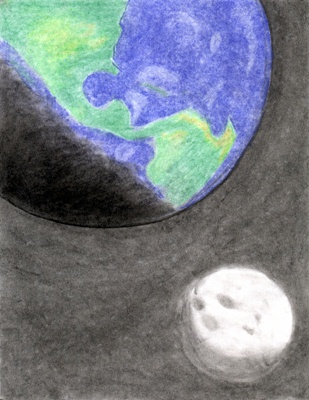All Nonfiction
- Bullying
- Books
- Academic
- Author Interviews
- Celebrity interviews
- College Articles
- College Essays
- Educator of the Year
- Heroes
- Interviews
- Memoir
- Personal Experience
- Sports
- Travel & Culture
All Opinions
- Bullying
- Current Events / Politics
- Discrimination
- Drugs / Alcohol / Smoking
- Entertainment / Celebrities
- Environment
- Love / Relationships
- Movies / Music / TV
- Pop Culture / Trends
- School / College
- Social Issues / Civics
- Spirituality / Religion
- Sports / Hobbies
All Hot Topics
- Bullying
- Community Service
- Environment
- Health
- Letters to the Editor
- Pride & Prejudice
- What Matters
- Back
Summer Guide
- Program Links
- Program Reviews
- Back
College Guide
- College Links
- College Reviews
- College Essays
- College Articles
- Back
Recycling Is the Way MAG
The resources that are found on earth may be rich and extensive, but they are not unlimited. Oil is one of the main resources we use. Lunch boxes, toys, medicine, bottles, bags, shampoo, and telephones are just a few of the products that are produced using oil. Can we live without these? Many people don't realize what a big impact oil has on our lives. They don't understand that some day we will use up all the oil. That's why we must be cautious and try to conserve more and use as little oil as we can. One way to do this is by recycling. Recycle everything that can possibly be recycled – every bottle and plastic bag – so that the material can be reused to make more bottles and bags, thereby wasting less oil. Recycled plastic can be made into other materials besides just more plastic. In 2009 more than seven million T-shirts were created from recycled plastic.
In 2005, 30 billion plastic bottles were purchased in the United States, and 26 billion ended up in landfills. This means that only 13 percent were recycled. When we recycle plastic bottles, it frees up energy to be used elsewhere on other products and could reduce gas emissions by 71 percent. This will help stop global warming and make the air cleaner.
Oil isn't the only natural resource that's being wasted at an alarming rate. Every day, millions of trees are cut, shredded, and combined with other materials to make paper, then sent out into the world where people don't think twice about using it and then throwing it away. What they don't realize is that it takes 24 trees to produce one ton of virgin paper. Every day, every person in the United States directly or indirectly uses about two pounds of paper. If a person lives for 80 years, they use 960 trees in their lifetime!
In 2012, Americans threw away enough paper to cover 26,700 football fields. Just think of all the trees that could have been saved if that paper had been recycled. Recycled paper takes 40 percent less energy to produce, and it releases 74 percent less toxic gas. Recycling one ton of paper also saves 7,000 gallons of water, 380 gallons of oil, and 4,000 kilowatt hours of energy – enough to power 50,000 homes each year.
Many communities in the United States offer curbside pickup for recycling. It's an easy way for families to recycle household materials like paper, aluminum cans, plastic bottles, and cardboard. Unfortunately only eight percent of household waste is recycled, though more than 60 percent could be.
Every day every one of us generates on average 4.5 pounds of trash, and the United States throws away enough trash to fill 63,000 garbage cans daily. Most of our trash goes to landfills that eventually fill up, then another piece of beautiful land is needed to house our waste. One of the reasons landfills are bad for our environment is they release methane gas as the trash decomposes. As a greenhouse gas, methane is 22 times more potent than carbon dioxide. If we recycle, we can decrease the amount of methane released into the atmosphere.
Recycling rates in the U.S. are currently at 32.5 percent. If we increased that even just to 35 percent, it will be like removing a million cars from the road, saving oil and natural resources. Recycling has amazing benefits for our environment, and it needs to be a conscious and continual routine for every household. If we recycle we will use fewer resources and increase the life of our earth and the materials that we love so much.

Similar Articles
JOIN THE DISCUSSION
This article has 0 comments.
